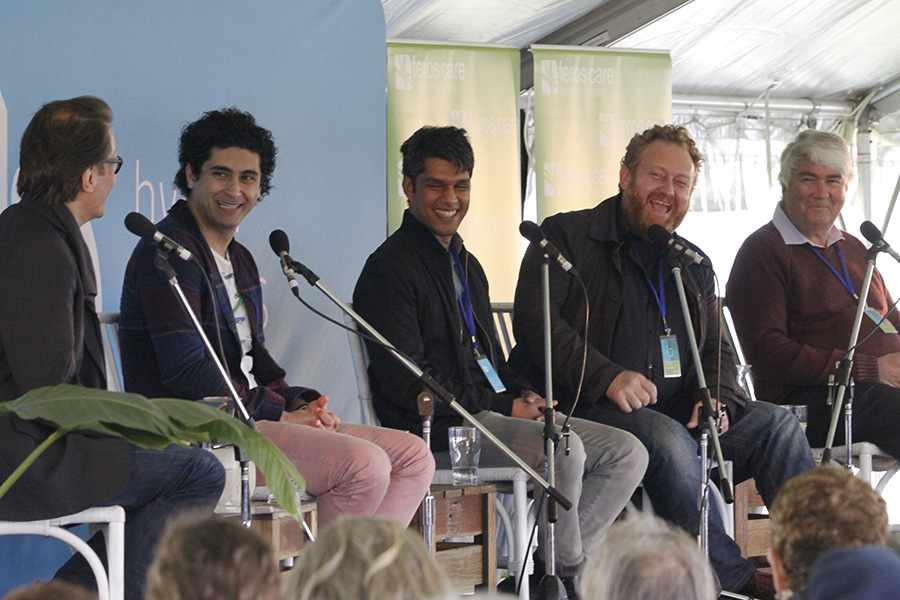Justice for refugees is justice for all

A photograph of Behrouz Boochani, a Kurdish Iranian journalist, occupied a seat at the panel Justice for Refugees at Byron Writers Festival 2016. Session chair Chip Rolley explained that Boochani has been a detainee on Manus Island for the past three years, and the vacant seat was a reminder of the injustices refugees face daily in times of cruelty and fear.
Joining the panel was Osamah Sami, actor, comedian, and author of Good Muslim Boy. After his father came to Australia in 1993, Sami and the rest of his family sought asylum here in 1995, escaping the conflict between Iran and Iraq.
When asked if he, as a refugee, had found justice, Sami said no.
‘Because the justice is not just for me. The justice is for all my fellow human beings.’ He said that while he has a good life, 10 million others who seek asylum do not, and therefore ‘can’t bask under that justice’.
While previously unexposed to the plight of refugees, Rajith Savanadasa, author of Ruins, gained inspiration from the refugees he worked with at the Darebin Ethnics Community Council.
Despite the media depiction of refugees as a faceless horde, there are details that are overlooked. It was from Savanadasa’s work with Open City Stories, in which he recorded and transcribed interviews with asylum seekers, that he was inspired to write his own fiction.
After trying and failing to be ‘clever’, he said that when he started ‘talking to people where all they have is the story … it made me think forget the cleverness … [and just] tell the story straight’.
Empathy is vital in working towards a semblance of justice for refugees, yet it is lacking in Australian governance.
David Manne, a human rights lawyer and Executive Director of Refugee Legal, had challenged the Malaysia Solution of the Gillard Government in 2011 in the High Court and won.
‘There is a profound lack of commitment in politics towards liberty,’ said Manne, referring to the fact that for 25 years, policies have been in place punishing families who have done nothing wrong. He said the reason Boochani was not seated on the panel was due to Australia’s problem with liberty.
So what are we getting wrong? Why does each refugee ‘solution’ seem worse than its predecessor?
This question was posited to Frank Brennan, Jesuit priest, human rights lawyer and author of No Small Change: The Road to Recognition for Indigenous Australia. His answer was that Australia is discharging its responsibility.
‘We’ve lost the capacity for bipartisan support,’ said Brennan, on the political one-upmanship guiding the development of policy.
Rolley opened up the question to the panel of what should be done to help.
Manne believed that Australia is in need of a genuine conversation instead of a political discourse on which major party can come up with the harshest policy.
Furthermore Brennan suggested Australia needs a series of bilateral agreements to assist Malaysia and Indonesia in taking care of refugees, as well as accepting more refugees to improve the situation.
Savanadasa said that literature and the arts can be used to disperse the representation of refugees as simply a mass of people. He believed that change can occur when people start to recognise themselves in the mainstream.
Aside from larger scale acts, the panel agreed that ‘small activism’ can make a difference, such as making donations, or even getting to know a refugee.
‘It is critical’, said Manne, ‘once people get to know each other and connect, things change’.
Sami echoed Manne’s sentiment with a saying he spoke in Arabic, which translated roughly to ‘drop by drop the ocean makes’.
Small acts from many people all contribute to seeking justice for refugees.
Lachlan Rutherford is a Bachelor of Arts (Honours) student at Southern Cross University. He completed his Honours thesis on David Foster Wallace’s fiction this year.
